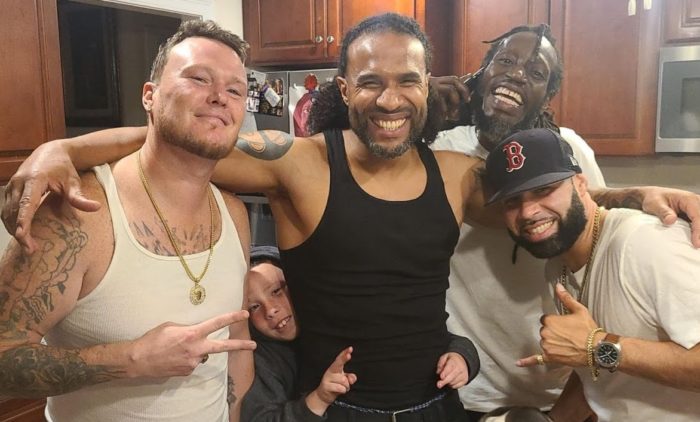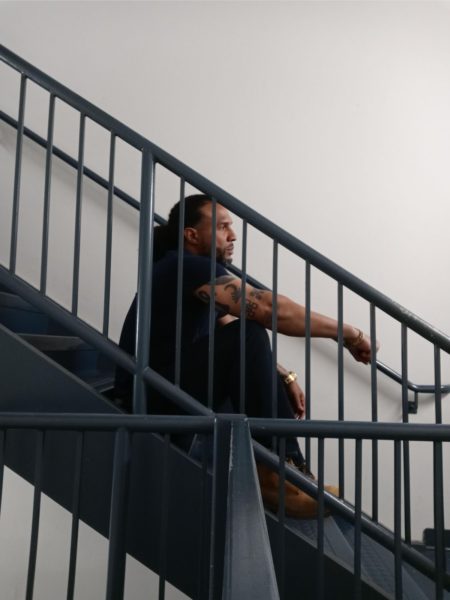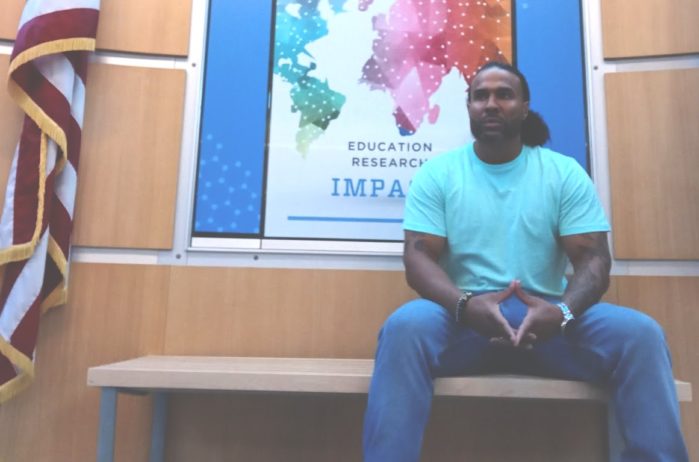
“It’s important to have someone as a community organizer who has been affected by incarceration.”
“People need to understand how much impact formerly incarcerated people can have on the community,” said Joseph Irizarry, the newly hired community organizer for the Campaign to End Life without Parole in Massachusetts (CELWOP). CELWOP (which this reporter participates in) did a statewide search for an organizer before it hired Irizarry.
Irizarry was speaking about his charge to coordinate a statewide drive to increase public awareness of the sentence of life without parole (LWOP) and to galvanize public support in Massachusetts to end sending people to prison with no possibility for release.
While there is pending legislation filed by state representatives Liz Miranda and Jay Livingstone to allow those serving LWOP to seek parole after 25 years (H.1797), many people do not understand the need to offer second chances, Irizarry said. Part of his job, he noted, will be to educate people across the state as to why those sentenced to life behind bars should have the opportunity to earn parole.
With the opportunity for parole, there is no guarantee that an applicant will be released. But according to an email to me from Karter Reed, one of two formerly-incarcerated co-chairs of CELWOP, “The vast majority of those in prison for committing horrific acts bear little or no resemblance to their former selves. It is most often those who’ve done the worst who are the most driven to change.”
In 2019, this reporter wrote about how keeping people behind bars without any hope for release provides no assurance of more public safety and does not reduce crime rates or give victims the tools to truly heal. The Sentencing Project, a Washington, a DC-based research and advocacy center which has launched a national campaign to end life imprisonment, has research showing that, nationwide, one-in-seven people in state prisons are serving a life sentence—more than 200,000 men and women—and “people of color represent two-thirds of the life-sentenced population.”
In Massachusetts, one out of every10 prisoners is serving an LWOP sentence. As of Jan 1, 2020, more than 12% of the Department of Correction population was over the age of 60, considered “elderly” in prison. According to a fact sheet written by the non-profit Prisoners’ Legal Services, “Not only do people age out of crime, but it is also two to three times more expensive to house an elderly prisoner.”
In a far-ranging interview that began with his years of abuse in the foster-care system and moved to his desire to end what is often called “the other death penalty,” Irizarry spoke about how he dedicated his life to giving back to the communities he harmed. He served 20 years for the gang-related murder of Angel Rodriguez in Lawrence in 2000.
Irizarry was hired on July 1 with help from funds provided by the Sentencing Project. He plans to connect with faith-based groups, unions, high schools, colleges, and community-based and activist organizations as he seeks to create more understanding of the viability of second chances for those sentenced to LWOP.
Irizarry comes to the job with a background steeped in the understanding of what often gives rise to crimes of brutality, what he called “cycles of trauma” that connect to “cycles of violence.”

Irizarry was born in the South Bronx in 1980 in an area of “abandoned buildings and dirty mattresses.” At age five, he witnessed a murder. At that same age, he learned from his father, “We never tell nothing to the police.” His father, who met his mother in New York, was “a dark-skinned Puerto Rican, a soldier, promised the glories of the US,” Irizarry said. Irizarry had a “traumatic upbringing,” he added, witnessing abuse not only at home but in the score of foster-care placements where he lived, beginning at age eight.
Irizarry said that at 11, one family “treated me like a slave and called me ‘their little nigger.’” This, and his foster mother telling him he had a “gangster face” caused him to run away from the home, grabbing a bike and heading from Lawrence to Boston. Eventually, he was picked up by a stranger in a van who drove him and his bike to Dorchester, where Irizarry pedaled to the Department of Social Services office. At first he was thankful they placed him in another home, he recalled, but in the next placement, he was traumatized when his brother (who had been placed with him) was raped by his caretaker.
Irizarry said he couldn’t take foster homes any longer after that and ended up living on the street. Eventually, he committed crimes to get money to eat, and joined a gang—the Latin Kings—which housed him and gave him a sense of family. “All I wanted,” he said, “was to have power and be respected.” Irizarry became known as a fighter and eventually became a gang leader. He told me they called him “King Camouflage” because he wore a lot of camouflage clothing. By age twenty, he was behind bars for murder.
Behind bars, he changed his direction, stopped gang life, and learned what healing can do, Irizarry said. He took part in programs such as Restorative Justice and Project Youth where he told his story to students. He trained service dogs for those who are blind, deaf, or otherwise in need of a guide dog. “I always loved to read,” he said, and began the joint Bunker Hill Community College and Tufts University college program at Concord Prison.
Hilary Binda, who is the director of the Tufts University Prison Initiative, said in a phone conversation that she met Joe in 2018. He was a “super-talented and grounded student who had obvious leadership skills… He’d get an idea and organize people around it… He is also a networker and someone who wants to connect people and organizations with other organizations.”

Since he was released on parole in 2020, Irizarry has continued with Tufts in the My Turn Program, a re-entry initiative for people returning from prison. He is a mentor for younger students, and said he has witnessed his own and others’ individual healing. He’s also become a personal trainer, seeks to make fitness a lifestyle, and is involved with Inner City Weightlifting, which amplifies “the voice and agency of people who have been most impacted by systemic racism and mass incarceration.”
Sean Ellis, the other formerly incarcerated co-chair of CELWOP, a fully exonerated prisoner and the subject of the Netflix series Trial Four, spoke to me about Irizarry’s new role. “It’s important to have someone as a community organizer who has been affected by incarceration,” Ellis said.
Throughout his wrongful imprisonment, Ellis said he experienced firsthand how the sentence of LWOP strips away at a person’s humanity and victimizes family members. His hopes for Joe are the same as his hopes for CELWOP, “to end the sentence of life without parole.”
Irizarry is currently living in a sober home and on lifetime parole because of his crime. With this job, Irizarry said that one of the first things he wants to do is “build bridges of understanding between people on all sides of the issue.” He added, “As people, we stand on our own islands but we can still understand each other. Even if people do not want LWOP to end—our islands do not need to be together—we can create a bridge to understand each other.”
Jean Trounstine is a writer, activist, and professor whose latest book is Boy With a Knife: A Story of Murder, Remorse, and a Prisoner’s Fight for Justice. She is on the steering committee of the Coalition for Effective Public Safety.

